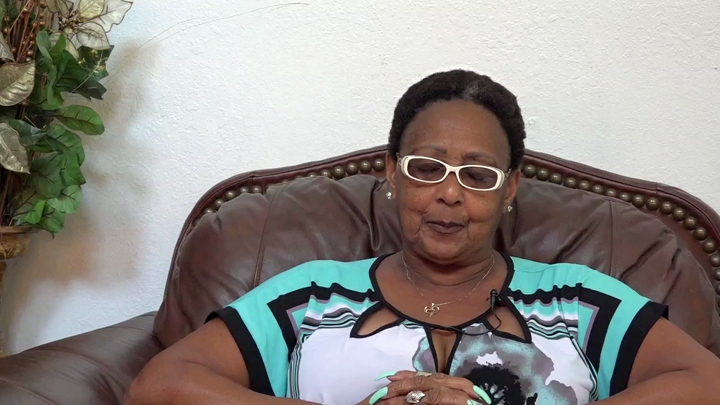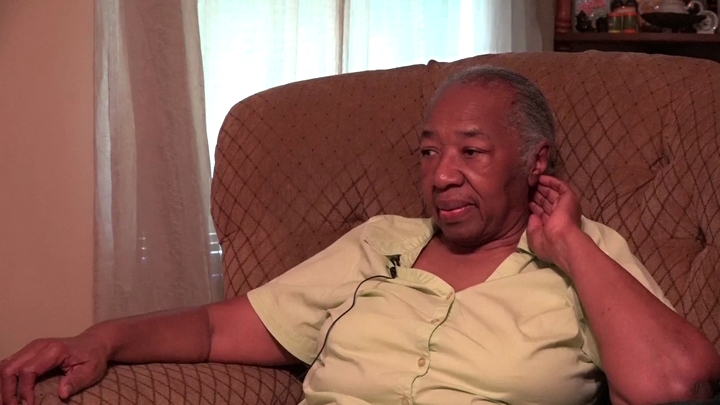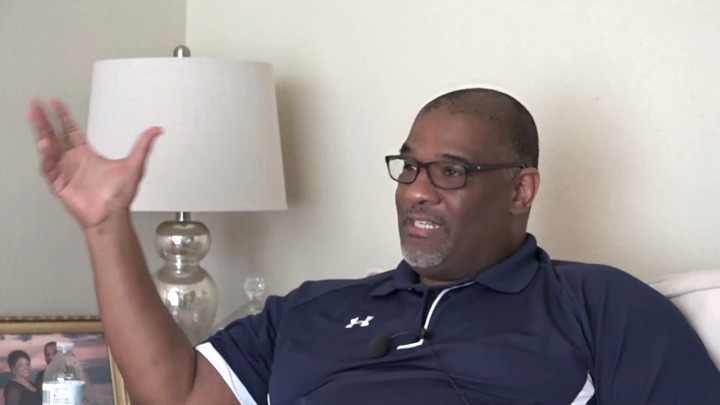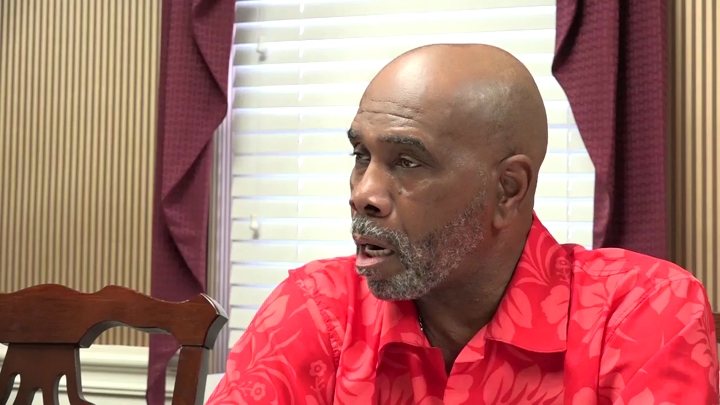Bonilla / Family History
sign up or sign in to add/edit transcript
Interview with Eva Bonilla Part 2: Family History Ms. Prewitt: The neighborhood you grew up in, can you describe the make up of it, and kind of where it was as in the relation to other ethnic groups in Fort Worth? Ms. Bonilla: Well, there was two blocks on Lisonburger street that was mostly Mexican-American, so we were labeled. My birth certificate said I was white, but the government labeled us Mexican-Americans. Yet, I had, on this one little block four generations. All my fathers’ family were from Spain. My mothers’ grandmother was from Mexico—well my grandmothers’ family was from Mexico—And she married a Native American, but yet I was labeled Mexican-American. And at that time, when I was born, we were not allowed to speak Spanish, we were punished. So my grandmother, both grandmothers, they would tell me the history of when they grew up and what their grandfathers did. I use to think – cause I didn’t read it in the history book back then—that they were getting old and they were confused and what they told me were maybe not true. But my grandmother said that our relatives were in the Alamo and the other grandmother would say that the river crossed us. We were Mexico and Spain before, you know. That why today I have no one I related to in Mexico. I’m sure I have relatives you know, 5th/6th generations, but I don’t know them because we were here and some of my family was here in the 1848 Mexican-American revolution. So, this little group of family, we never locked—I called them my familia—the whole two streets of Lisonburger, we never locked our doors. We felt safe. My grandfather had, on my mother side, had migrated here from la rancho cause he had lost his rancho—his father had lost his rancho—because of the Mexicans taking it away in south Texas. So, he came here because of armor and swift to work in the cattle. He knew how to slater cattle. He knew how to—he was a vaquero—and my paternal grandfather came here because of the railroad. He was in Laredo. His family had entered; I think he had told me, through Galveston and the Spaniards came in. That was the story I was told, but I have never found the history on it. They all lived in Corpus Christi, Laredo and so from there he joined the railroad and moved to Fort Worth because of the railroad. So they lived, they were labors. They did have the top ranked jobs. So I never knew I was poor until I went to college. And really, I probably could have had the opportunity to win scholarships if there were scholarships back then or get social welfare, but instead, my husband and I when we were in college, we were helping other people. And until my daughter who is now 30 was at TCU and wrote a story about us that we realize we did live in poverty. We took it for granted. We had everything. My grandmother made our dressed. We never lacked for food. I had it made because my both grandparents lived on one street, that one block, and when I didn’t like what this one grandparent made for dinner I would tell her I ate and so I would go to the other grandmother to eat you know because my mother worked from 3-11. But the neat thing about my mother being an elevator operator, she beat Jenifer Lopez because she was promoted to housekeeper at the Hotel Texas. So when President Kennedy came she was the one that had security clearance to take him up on the elevator. So she was one of the ones that got to see him that morning before he died and go to speak to them. I have pictures of that somewhere; I have to pick it out. And also, the night before, my father being the president of Passo and the viva Kennedy club was able to have dinner with president Kennedy the night before he died. So, I tell you I was born in it. Great time, and my parents, I took it for granted. Cameras weren’t in then. We never took pictures. We don’ have picture. And even when we helped host Cesar Chavez when he has his fast here, he autographed with a ballpoint pen-- That was before sharpies—t-shirt for my husband for what we had done for him. He gave that to my husband. I accidently washed it, and his gratitude and his signature on this t-shirt went away. I thought we were getting a divorce at that time.
| Interview | Interview with Eva Bonilla |
| Subjects | Family › Family Histories and Traditions |
| Housing › Neighborhoods | |
| Community Organizations › Civil Rights Organizations › Political Association for Spanish-Speaking Organizations (PASSO) | |
| People › Chavez, Cesar | |
| Tags | Hotel Texas (Fort Worth) |
| sign up or sign in to add/edit tags | |
| Interview date | 2013-03-28 |
| Interview source | Texas Communities Oral History Project |
| Interviewees | Bonilla, Eva |
| Interviewers | Prewitt, Caleigh |
| Theberge, PJ | |
| Locations | Fort Worth, TX |
| Duration | 00:05:42 |
| Citation | "Family History," from Eva Bonilla oral history interview with Caleigh Prewitt and PJ Theberge, March 28, 2013, Civil Rights in Black and Brown Interview Database, https://crbb.tcu.edu/clips/7/family-history, accessed March 02, 2026 |






